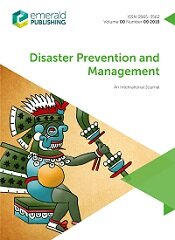RADIX
Home for Radical Interpretations of Disasters and Radical Solutions
RADIX was established by Ben Wisner and Maureen Fordham in 2001, stimulated by witnessing yet more major disasters in the preceding decade, and inspired to act by those in Gujarat, India and El Savador in the first two months of 2001. The website and its companion mailing list were created and curated by Alberto Delgado Perez. They were designed as collaborative and open spaces to share contents that could help to develop radical disaster scholarship and practice.
RADIX is radical because it is concerned with both root causes of disaster (hence the Latin, radix) and structural actions to prevent disasters from the ‘bottom up’ as well as the ‘top down’. RADIX is non-sectarian but by no means apolitical as disasters are fundamentally about power distribution. Preventing disasters therefore requires political actions.
Over the past two decades, RADIX has evolved into a dynamic collective of people from around the world. It has inspired an entire new generation of disaster scholars to be critical and explore radical pathways for understanding and preventing disasters. However, this new generation of researchers has been confronted by the ‘mainstreaming’ of concepts such as ‘vulnerability’ and ‘resilience’, the generalisation of universal understandings of disaster, and the proliferation of standardised approaches to prevention; all to the detriment of local, truly radical interpretations of, and solutions to, disasters. As a result, the children of RADIX have witnessed the hollowing out of political in what is now known as disaster risk reduction.
These frustrating and foreseeable developments have caused increasing discomfort among the children of RADIX. In order to revive the original ethos and ideology of the collective, we have composed the Power, Prestige and Forgotten Values: A Disaster Studies Manifesto and its companion Priorities, Values, and Relationships: A Disaster Studies Accord. The values of the Manifesto and Accord are at the core of this revamped RADIX website, which we hope will continue to be a hub for a critical, respectful, reciprocal, and genuine dialogue among researchers in disaster studies, independently of their disciplinary backgrounds, fields of practice, geographical location and favoured language.
This new RADIX website offers new multimedia interactions and links to an array of partners that support our advocacy: academic journals, blogs, projects websites, podcasts, livestream events, seminars, and more. The RADIX website continues to be a hub for sharing academic articles, conference addresses, project reports, policy briefs and other written accounts, including all the original materials available through the RADIX archives.
Finally, RADIX is now more than a website and a mailing list. We hence endeavour to promote the RADIX advocacy, our Manifesto, and the Accord through social media, especially Twitter, where you can follow us and our weekly editors’ discussions on @radix_disasters.
Thank you all for your support and long live RADIX!
The RADIX Collective
Featured Blogs
Partner journals
Partner podcast
Partner networks
Online debates













